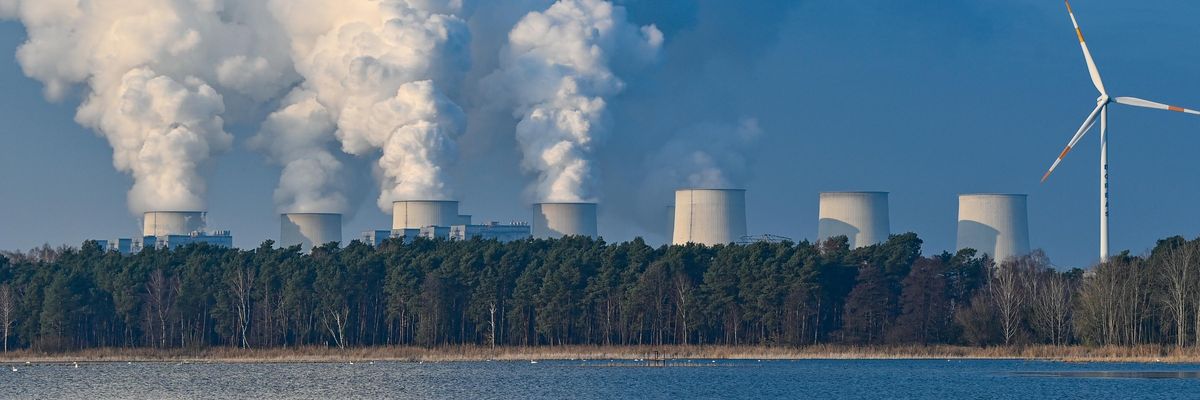The International Energy Agency warned Tuesday that global carbon dioxide emissions are on track to soar to record levels in 2023--and continue rising thereafter--as governments fail to make adequate investments in green energy and end their dedication to planet-warming fossil fuels.
In a new report, IEA estimates that of the $16 trillion world governments have spent to prop up their economies during the coronavirus crisis, just 2% of that total has gone toward clean energy development.
Fatih Birol, executive director of the IEA, slammed what he characterized as the hypocrisy of rich governments that promised a green recovery from the pandemic but have thus far refused "to put their money where their mouth is." Research published last month revealed that between January 2020 and March 2021, the governments of wealthy G7 nations poured tens of billions of dollars more into fossil fuels than renewable energy.
On top of being "far from what's needed to put the world on a path to reaching net-zero emissions by mid-century," Birol said that the money allocated to green energy measures thus far is "not even enough to prevent global emissions from surging to a new record."
"Governments need to increase spending and policy action rapidly to meet the commitments they made in Paris in 2015--including the vital provision of financing by advanced economies to the developed world," Birol continued. "But they must then go even further by leading clean energy investment and deployment to much greater heights beyond the recovery period in order to shift the world onto a pathway to net-zero emissions by 2050, which is narrow but still achievable--if we act now."
The IEA's analysis--which examines roughly 800 policies implemented throughout the coronavirus crisis by more than 50 countries--finds that "full and timely implementation" of the economic recovery measures would result in CO2 emissions surging to an "all-time high" in 2023 and continuing to rise in the following years, more than wiping out the pandemic-related emissions drop.
"While this trajectory is 800 million tonnes lower in 2023 than it would have been without any sustainable recovery efforts," the analysis notes, "it is nonetheless 3,500 million tonnes above" what's necessary to achieve net-zero emissions by 2050.
The Paris-based agency's latest findings come just months after it said world governments must immediately halt all new investments in oil and gas projects in order to avert the worst consequences of the climate crisis, which is wreaking havoc across the globe in the form of catastrophic flooding, deadly heatwaves, drought, and wildfires.
Birol plans to present the IEA's new report to the leaders of G20 nations, which--according to research published Tuesday morning--have handed more than $3.3 trillion in subsidies to the fossil fuel industry since the Paris climate accord was finalized in 2015.
"The action taken by these countries up until this point is a far cry from what is needed," Antha Williams, the environment lead at Bloomberg Philanthropies, which helped conduct the subsidy research, told The Guardian. "As a host of climate emergencies intensify around the world, the continued development of fossil fuel infrastructure is nothing short of reckless. We need more than just words--we need action."

